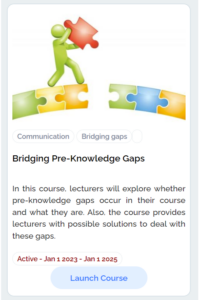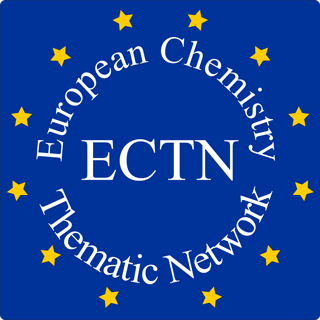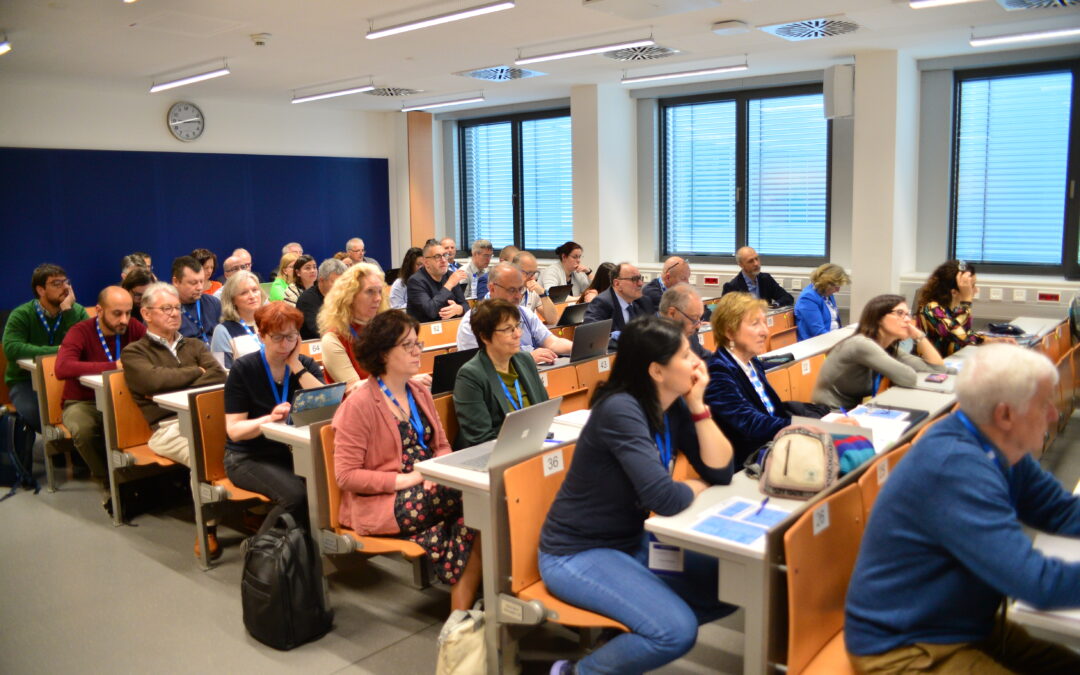
Apr 6, 2024 | News
ECTN 2024 General Assembly and Annual Meeting
The ECTN General Assembly took place on 4 – 6 APRIL 2024 at the Vienna University of Technology (TU Wien), Austria.
Work sessions for the ECTN Work Groups and Committees and a number of plenary lectures and workshops took place.
In conjunction with our Annual Meeting and General Assembly, our Erasmus Plus Project, Distinct, hosted a special event titled “Training for Heads of Student Laboratories” from April 3rd to April 5th.
Here some of the pictures of the GA2024.
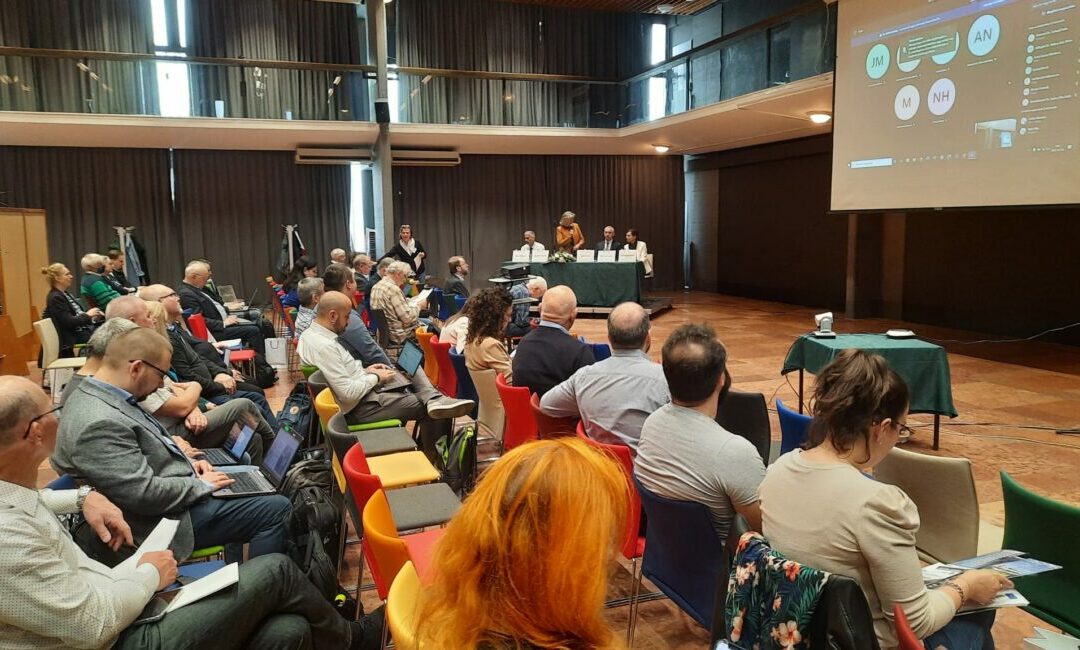
Mar 5, 2024 | News
ECTN 2024 General Assembly and Annual Meeting – Registration now open.
Please register as soon as possible on the meeting website.
Registration will close on 11th March 2024.
As previously announced, the ECTN General Assembly will take place on 4 – 6 APRIL 2024 at the Vienna University of Technology (TU Wien), Austria.
The business part of the meeting will include elections for members of the Administrative Council.
There are, as usual, work sessions for the ECTN Work Groups and Committees and a number of plenary lectures and workshops.
There will also be an opportunity to learn about how to get involved with our Eurolabel® activities by joining the Panel of Experts who are eligible to assess Eurolabel® applications. There will be a short session about this on the Friday morning.
In conjunction with our Annual Meeting and General Assembly, we are thrilled to announce that our Erasmus Plus Project, Distinct, will be hosting a special event titled “Training for Heads of Student Laboratories” from April 3rd to April 5th.
This training activity is an excellent opportunity to engage in enriching educational experiences, share best practices, and learn from each other. We strongly encourage all to participate and contribute to this collaborative learning environment
The website will be updated with the latest developments so please keep an eye on it.
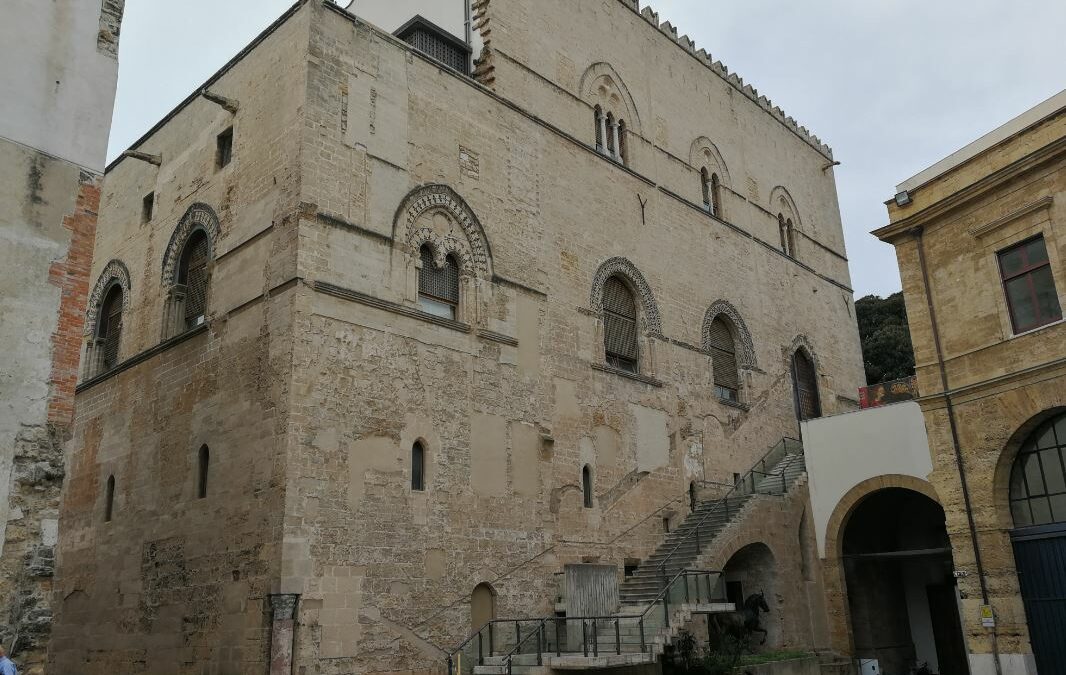
Feb 7, 2024 | News
The 4th STEM-CPD Summer School will be organized from 7-11 October 2024 at the University of Palermo, Italy. The STEM-CPD Summer Schools are dedicated to continuous professional development (CPD) in teaching and learning in higher education STEM disciplines (Science, Technology, Engineering, and Mathematics). The program enables participants to implement professional development activities for lecturers at their respective universities, thereby enhancing the quality of education and become a CPD-Ambassador.
The 4th STEM-CPD Summer school can accommodate a maximum of 24 participants. The application is open to May 1, 2024. Note that the participants from the ECTN member universities can get a reduced fee 400 euro.
See the 4th STEM-CPD Summer School site for more information and application.
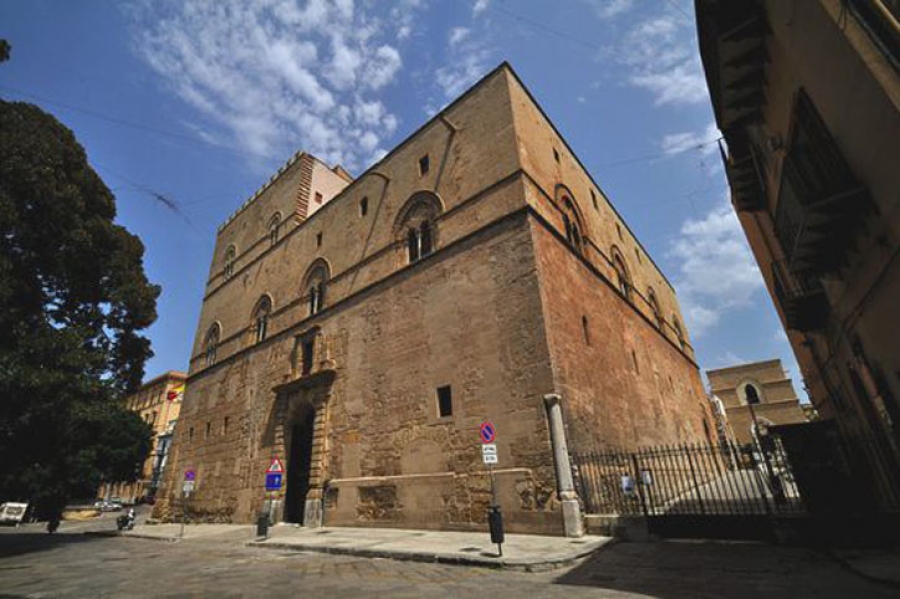
Dec 15, 2023 | News
The 4th STEM-CPD Summer School will be organized from 7-11 October 2024 at the University of Palermo, Italy. The STEM-CPD Summer Schools are dedicated to continuous professional development (CPD) in teaching and learning in higher education STEM disciplines (Science, Technology, Engineering, and Mathematics). The program enables participants to implement professional development activities for lecturers at their respective universities, thereby enhancing the quality of education and become a CPD-Ambassador.
The 4th STEM-CPD Summer school can accommodate a maximum of 24 participants. Deadline for application is May 1, 2024.

See the 4th STEM-CPD Summer School site for more information and application.
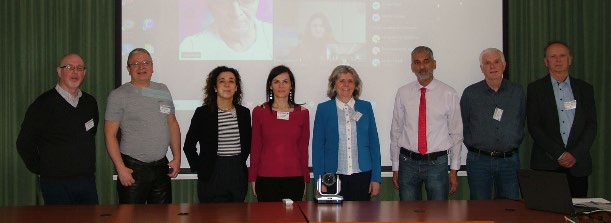
Oct 30, 2023 | News
Find here the last Newsletter which discusses two projects conducted by ECTN: STEM-CPD@EUni and DISTINCT and invites you to the annual Meeting in Vienna, April 4-6, 2024″
In the Newsletter you will find:
- the truth behind Erasmus Plus Project STEM-CPD@EUni,
- invitation to participate in STEM-CPD scenarios and user cases
- a few words about:
– Enhancing teaching competencies through MOOCs
– Digital Support in Chemistry Teaching
Information about ECTN General Assembly and Annual Meetings: in Amsterdam (2023) and Vienna (2024)
Find here the last ECTN Newsletter -August 2023
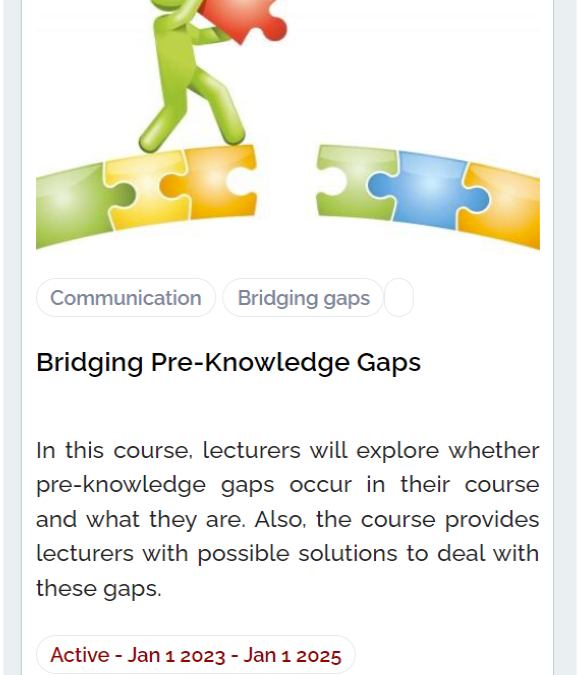
Aug 29, 2023 | News
On the platform MOOCs you will find over 20 short online courses on how to educate students. These modules cover a variety of topics, including students assessment, misconceptions, communication, 3D printing, PBL, MOOC design.
Read more:
“MOOCs take about 1-3 hours of learners engagement/involvement per module. They consist of engaging, media-rich reading material, short video clips, forums and assignments. Check out there for inspiration.
We also invite you to participate in the piloting of new modules (and again a link to the platform).”
See MOOCs for more information